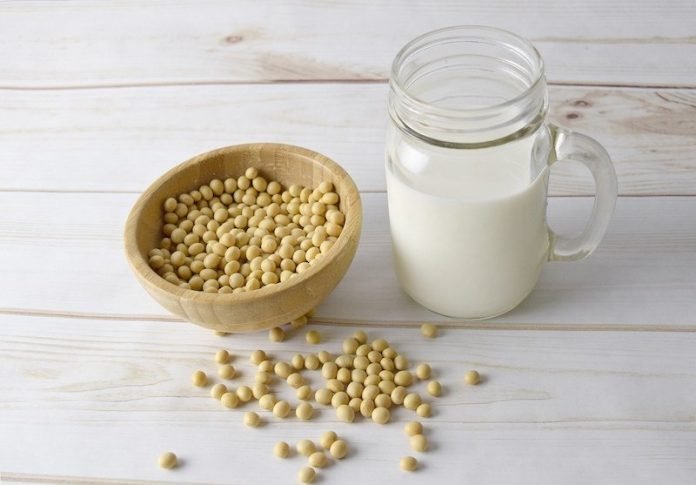
In a new study, researchers found that a metabolite produced following consumption of dietary soy may decrease a key risk factor for dementia—with the help of the right bacteria.
They found that elderly Japanese men and women who produce equol—a metabolite of dietary soy created by certain types of gut bacteria—display lower levels of white matter lesions within the brain.
White matter lesions are significant risk factors for cognitive decline, dementia, and all-cause mortality.
They found 50% more white matter lesions in people who cannot produce equol compared to people who can produce it, which is a surprisingly huge effect.
The research was conducted by a team at the University of Pittsburgh.
To obtain this result, the team measured equol levels within the blood of 91 elderly Japanese participants with normal cognition.
Participants were sorted by their equol production status, and then six to nine years later underwent brain imaging to detect levels of white matter lesions and deposits of amyloid-beta, which is the suspected molecular cause of Alzheimer’s disease.
The researchers found that while equol production did not appear to impact levels of amyloid-beta deposited within the brain, it was linked to reduced white matter lesion volumes.
The team also discovered that high levels of isoflavones—soy nutrients that are metabolized into equol—had no effect on levels of white matter lesions or amyloid-beta when equol wasn’t produced.
According to the team, the ability to produce equol from soy isoflavones may be the key to unlocking protective health benefits from a soy-rich diet, and they had previously shown that equol production is associated with a lower risk of heart disease.
As heart disease is strongly linked to cognitive decline and dementia, equol production could help protect the aging brain as well as the heart.
The team says that equol supplements could one day be combined with existing diet-based prevention strategies that appear to lower the risk of dementia, particularly the Dietary Approaches to Stop Hypertension (DASH) and Mediterranean diets.
One author of the study is Akira Sekikawa, M.D., Ph.D., an associate professor of epidemiology.
The study is published in the journal Alzheimer’s & Dementia: Translational Research & Clinical Interventions.
Copyright © 2020 Knowridge Science Report. All rights reserved.



